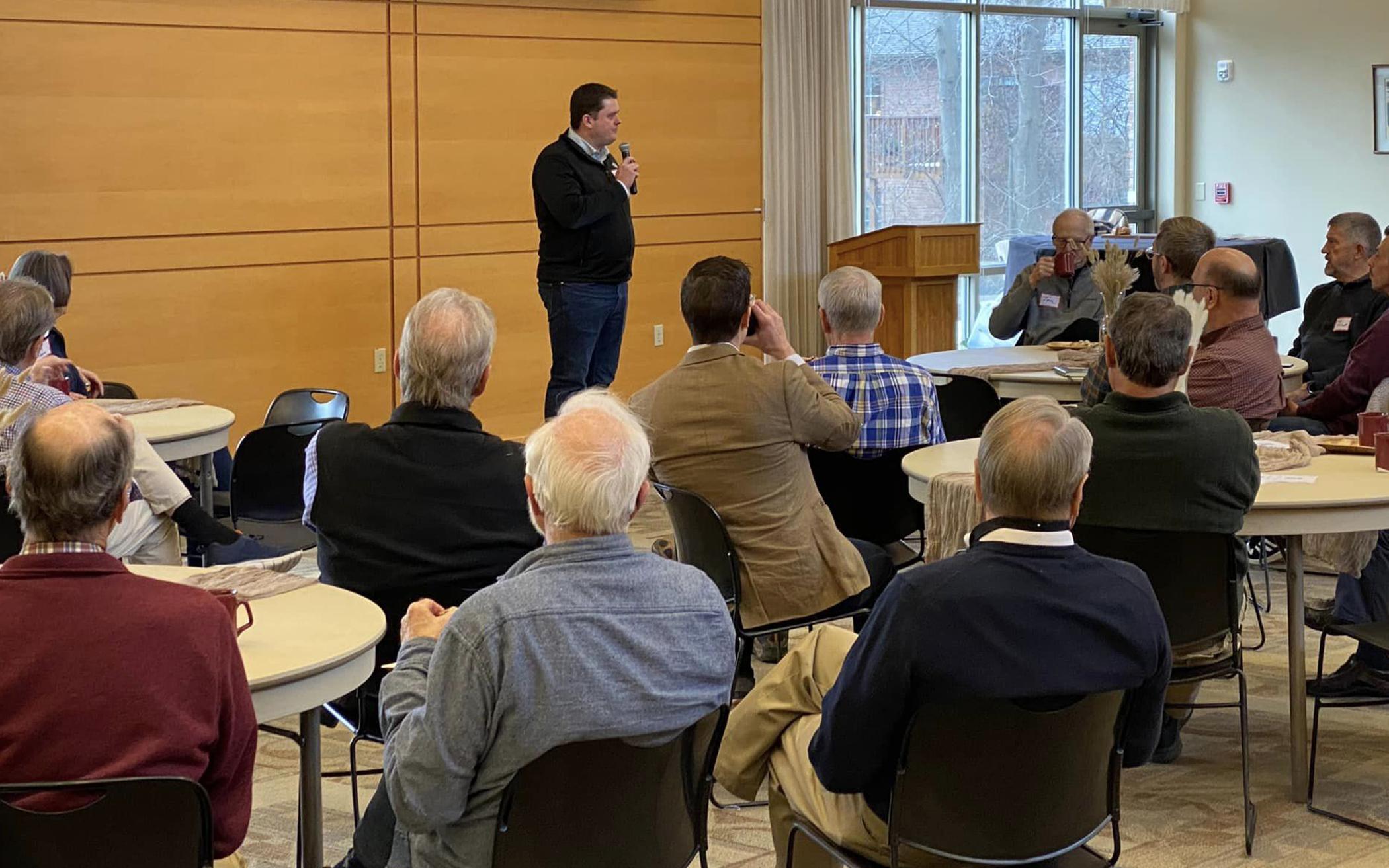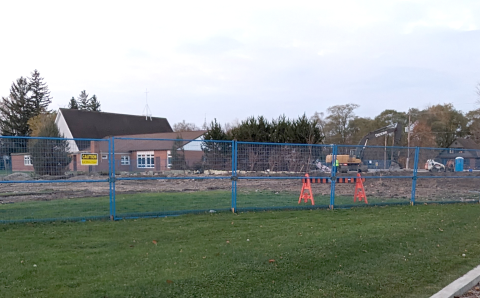Several Christian Reformed congregations have launched an initiative they hope will help congregations work together across differences on issues such as sexuality and politics for the sake of serving others in the name of Jesus and sharing the gospel.
It’s called the Better Together Project, a tangible opportunity from the 2023-formed Better Together group, and the effort has received a three-year grant of more than $1.23 million from the Lilly Endowment’s Thriving Congregations Initiative. The initiative is intended to encourage the flourishing of congregations by helping them develop deeper relationships with God, connect with each other and contribute to the flourishing of their communities. Calvin CRC in Grand Rapids, Mich., applied for the grant, and Nate DeJong McCarron, pastor of Fuller Avenue CRC in Grand Rapids, is serving as the project’s interim leader.
The Better Together Project is designed to build what organizers call a “centered-set network” of churches that focus on a common mission of becoming Christ-followers rather than a “bounded-set” that defines itself in terms of doctrines that determine who is “in” and “out,” DeJong McCarron said.
“Rather than being defined by the boundaries we might have, by the documents we might develop, we’re calling churches to place their primary identity in the Jesus that we love and the Jesus that we serve,” DeJong McCarron said.
DeJong McCarron said the conflict over sexuality is “one striking and probably pressing example” of the polarities affecting the CRC, but the conflict is not limited to that issue, and this project reaches beyond the CRC.
Rebecca Jordan Heys, who is the minister of worship and pastoral care at Calvin CRC, is hopeful the Better Together Project will help congregations become more Christlike in the way members disagree with one another, while refocusing on the gospel mission.
“The way we navigate the conflict itself is ... a way that we bear witness to Christ’s love for the world. My hope is that the world will see the way that we love our ‘enemies’ so well within the church, that people will be compelled to learn more about where this love comes from and come to know Christ,” Jordan Heys said.
The Better Together Project plans to create seven or more regional cohorts of churches across the United States, each led by a key partner church. About a dozen pastors across the U.S. have signed on to help launch these cohorts, DeJong-McCarron said.
Churches will commit to building unity within and across congregations, leading to new or expanding missional efforts. Leaders in each hub or cohort will then meet to “foster intentional dialogue, counter polarities, and build relationships through story-sharing,” according to a Better Together news release.
Annual summit retreats are planned to bring leaders from all participating churches together starting in October. In addition, the effort will receive training assistance through The Colossian Forum, an organization that works to help churches have difficult conversations and still remain unified in their missional purpose.
Doug Bratt, pastor of Silver Spring (Md.) CRC for the past 25 years, is on the steering committee of Better Together. He’s witnessed people of various faith groups working together in Silver Spring CRC’s food pantry, launched about 15 years ago. Initially serving about 30 people a month, the pantry grew to be supported by Catholic, Presbyterian, Jewish, and other groups—who now serve about 3,500 people a month.
“We made it clear that we were a church and that we were doing this in Jesus’ name,” Bratt said. “But people saw what we were doing, (from) of all sorts of faith (backgrounds) and, I imagine, no faith (background), and came together and said, ‘we like what you’re doing, caring for (those in need).’”
The Better Together Project is a bit different from typical cross-denomination work. It’s “an intentional three-year commitment in which congregations will be equipped not simply to partner with others, but to build unity and relationship with those they may disagree with,” DeJong McCarron said, “including those they disagree with within their own congregation and with other neighboring congregations as well.”
Bratt is hopeful the Better Together Project will not only impact Christ followers, but those who are watching the church and the Christian community.
“The fact is, right now, our culture has certain expectations of the church, and those expectations are pretty low,” Bratt said. “We’re hoping as churches come together for the sake of mission that people watching us will say, ‘wow. Look at how they love each other.’”
After the announcing the project, Feb. 1, Better Together hosted an open house at the Woodlawn CRC Ministry Center in Grand Rapids and had four video conferences for congregations wanting to know in February and March.
Better Together formed originally as a group promoting a possible “third way” for the Christian Reformed Church between the polarities of traditional church teaching on human sexuality and an affirming approach to same-sex relationships in the church.
Synod 2023 ruled out plurality on the matter within the CRCNA by upholding Synod 2022’s confessional status decision of what constitutes “unchastity.” Where that leaves current members, pastors, and congregations that aren’t in alignment with that decision is an open question.
Organizers say the networks envisioned in the Better Together Project aren’t a replacement for denominations represented by participating congregations.
About the Author
Greg Chandler is a freelance news correspondent for The Banner. He lives in Grand Rapids, Michigan.








